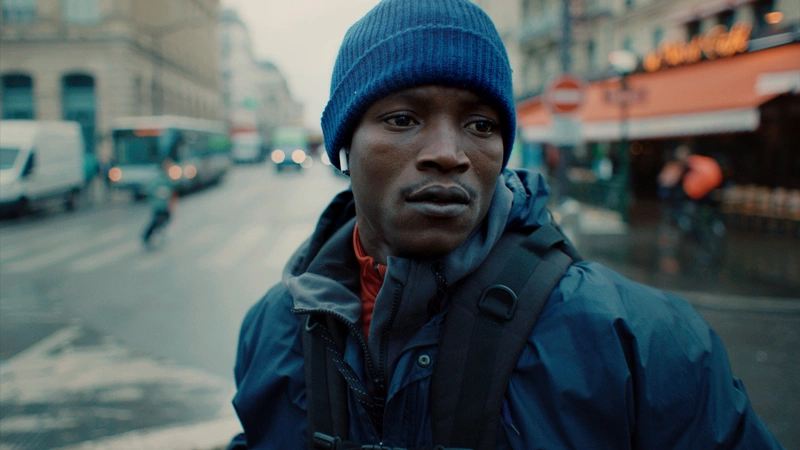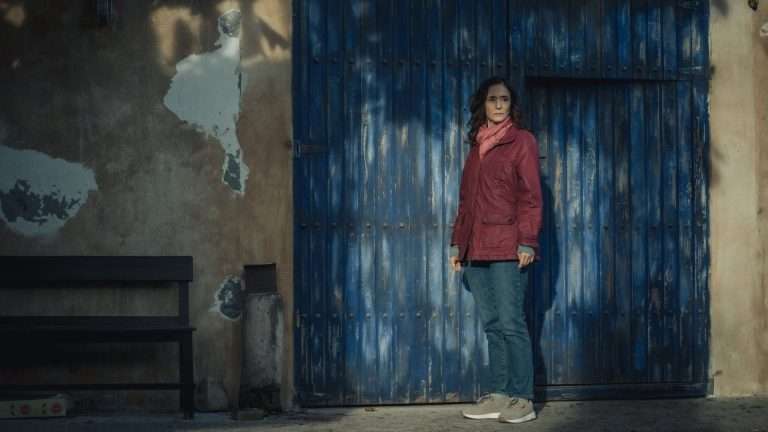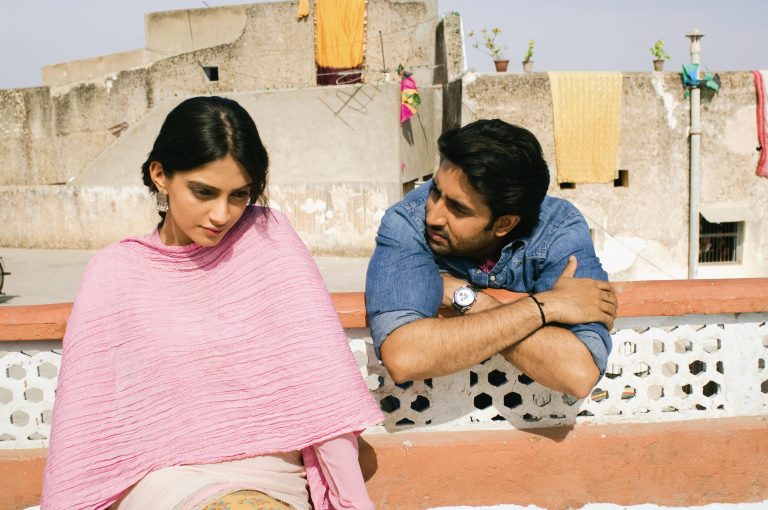In the current political climate, apathy is rampantly growing across the globe. The rise of a conservative mindset is making age-old prejudices more visible. Many countries are revising their immigration policies, which makes it even more difficult for people to seek a better life. On top of that, capitalistic systems are feeding us an illusion of hope without dismantling the status quo. That’s why the themes of Boris Lojkine’s “The Story of Souleymane” (L’histoire de Souleymane) feel vital.
Written by Lojkine with Delphine Agut, this film follows African-born Souleymane, who works as a food delivery cyclist while seeking asylum in Paris. It covers roughly two or three days from his life as he prepares for his asylum application interview, which will decide whether he can secure legal residency in France or not. He has a miserable past, which he hopes to leave behind. Back home, his mother struggles with severe mental health issues. He hopes to help her through his better pay.
In his upcoming interview, Souleymane needs to share some crucial details about himself. A local social worker provides him with a narrative. He believes that can boost Souleymane’s chances of success. But Souleymane is anxious that he will mess up in the interview. After all, that story isn’t his truth. So, as he rides his bicycle through the streets of Paris, he repeats this story to memorize it.
While working as a food delivery rider, Souleymane encounters a different set of difficulties. Most of these are public knowledge. The customers have unrealistic expectations from delivery personnel. On top of that, the employers of these exploitative gigs use unethical practices to add more misery to the lives of the delivery executives. The restaurants or cafe owners don’t offer them any dignity. So, Souleymane sinks deeper into a bottomless pit of misery. Still, he lives on an elusive hope of a better future. “The Story of Souleymane” weaves these struggles into its script.

As an immigrant drama, the film reminds you of some of its predecessors. Stephen Frears’s “Dirty Pretty Things” portrayed the immigrant struggles through a riveting thriller tale, whereas Julio Torres’s “Problemista” turned those things into a surreal dramedy. “The Story of Souleymane” is more of a sympathetic social realist drama that raises similar themes – be it the fear, uncertainty, or paranoia about living as a person with no land to call their own – or a sense of futility about their dreams.
However, Boris Lojkine’s film feels largely derivative and rarely explores anything specific about Souleymane’s experiences. It sheds light on the injustices Souleymane faces both as an asylum seeker and a delivery person. We witness his turmoil as he grapples with the distance from his loved ones or the betrayal from those he thought he could trust. But the film shies away from spending more time on these aspects and how they correlate to his specific socio-political position. For the most part, it only states the obvious.
As a film about a delivery rider, it explores almost everything that Nandita Das’s “Zwigato” did despite offering a different setting. Both films portray how delivery riders become punching bags for all sides of the system that is not designed to uplift them. The impressionable youth looks up to these protagonists for help, while the protagonists are just as clueless about the future.
Unlike “Zwigato,” “The Story of Souleymane” has some lighthearted moments that bring occasional joy to the life of its protagonist. However, besides a couple of effective scenes, the film feels oddly unremarkable. That doesn’t mean that the film fails on all the fronts. It is still fairly evocative. But much of its credit goes to Abou Sangare’s committed central performance. He is particularly impressive in a scene where Souleymane needs to bear his heart out during a situation that can make or break his future. Still, his performance isn’t enough to make the film stand out from similar works.








